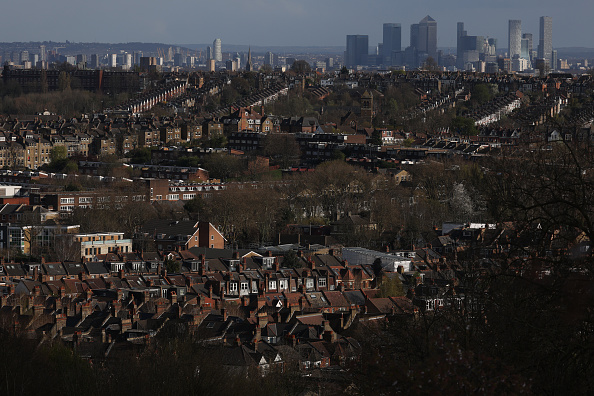Higher interest rates tipped to accelerate UK house price decline in quiet week for City

Higher interest rates are set to accelerate UK house prices’ decline, new figures in what will be a quiet week for markets are expected to reveal.
Analysts at consultancy Oxford Economics reckon Halifax’s house price data on Friday will show they dropped 2.5 per cent over the last year and 0.1 per cent over the last month.
That would be a much steeper drop than May’s one per cent annual fall.
Sellers are finding it harder to source buyers due to mortgage racing ahead over the last month to more than six per cent. That jump made it much less affordable to finance a house purchase.
Other surveys have indicated the property market is softening in response to tighter credit conditions, but not as much as some economists have predicted.
Nationwide last week said house prices actually rose 0.1 per cent over the last month. Some economists have predicted house prices could drop as much as 10 per cent.
City traders will be starved of any meaningful news this week as markets approach the typically quieter summer period.
Across the pond, minutes from the Federal Reserve’s latest interest rate decision meeting will be released on Wednesday. They are likely to provide information on why the federal open market committee chose to pause its aggressive rate hike campaign for the first time in more than a year.
“We wonder if Powell was trying to appease both the doves (with the pause) and the hawks (with the signal of further hikes) on the FOMC, resulting in the rather disjointed message,” analysts at fund manager Investec said.
Australia’s central bank will announce its latest interest rate move on Tuesday. The Royal Bank of Australia also paused its rate rises in April only to shock markets with a hike at its next meeting.
In the UK, final purchasing managers’ index numbers will be released throughout the week. Analysts don’t think there will be much change from the initial readings that showed the private sector is growing.
But, any further evidence of inflationary pressures hanging around via growing wages or cost pressures could raise the prospect of another 50 basis point increase from the Bank at its next meeting in August.
“We’ll be looking to see whether evidence of still-elevated price and wage pressures in the flash survey persisted,” analysts at Oxford Economics said.
Data from the Bank of England on Thursday will breakdown companies’ wage increase and price setting intentions for the year ahead.
“Keep an eye on firms’ expected price growth (1y ahead). This has been steadily trickling down,” Sanjay Raja, senior economist at Deutsche Bank, said.